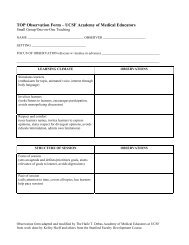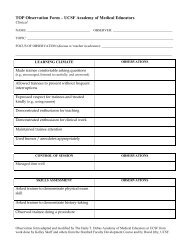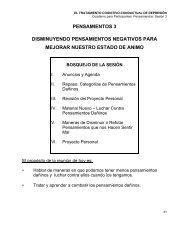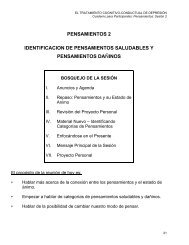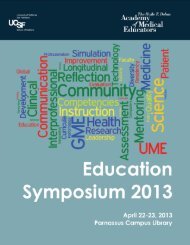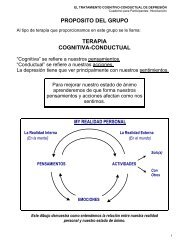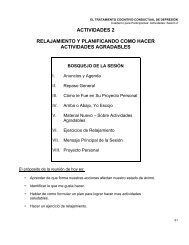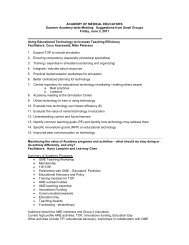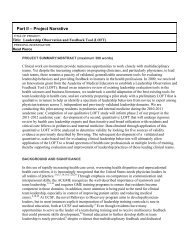The Healthy Management of Reality - Stanford University
The Healthy Management of Reality - Stanford University
The Healthy Management of Reality - Stanford University
You also want an ePaper? Increase the reach of your titles
YUMPU automatically turns print PDFs into web optimized ePapers that Google loves.
are what I mean by necessary suffering. <strong>The</strong>y are part <strong>of</strong> the way that we areconstructed. If our body is in good working order, some events will result infeelings <strong>of</strong> discomfort or pain.In my work as a psychologist I have been able to see many examples <strong>of</strong> howin addition to these types <strong>of</strong> necessary suffering we, human beings, add additionalsuffering which is really not necessary. For example, when someone has anillness, it is possible to react to it in more than one way. Let’s say that person (A)and person (B) both have the same severity <strong>of</strong> an illness, let’s say diabetes.Person (A) decides that diabetes is an unbearable tragedy, one that will keep himfrom living a full life. He develops resentment that envelops his being and colorshis experiences from that moment on by labeling himself as somebody who isseverely limited in what he can do. He refrains from doing things that could bringhim pleasure. So, in addition to the illness and the objective effect that the illnesshas on him, he adds his perception <strong>of</strong> the illness to his definition <strong>of</strong> himself and hislife, what he can and cannot do, what he can and cannot enjoy. Person (B) on theother hand, says: I am obviously not happy that I have developed diabetes, but I amgoing to try to limit its effect on my life as much as I can, and try to live as full alife as possible. If we think <strong>of</strong> these elements <strong>of</strong> suffering in terms <strong>of</strong> numbers, wecan say that, because <strong>of</strong> the diabetes, person (A) has a hundred points <strong>of</strong> sufferingthat those <strong>of</strong> us who do not have diabetes do not have. Person (B) also has ahundred points <strong>of</strong> this type <strong>of</strong> suffering, which I will call the necessary type.(What I mean here is for example, that they have to give themselves insulininjections each day, and be careful about the kinds <strong>of</strong> foods they eat). Now, person(A) in addition to those hundred points, may add another 100 points which are theresult <strong>of</strong> the resentment that he feels, the results <strong>of</strong> limiting himself and not doingthings that may have given him more pleasure. Person (B) adds no additionalHMOR.July2005.Muñoz.doc 38



